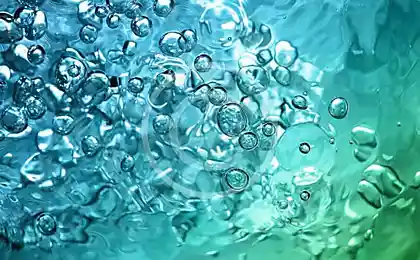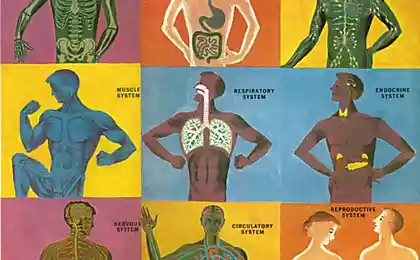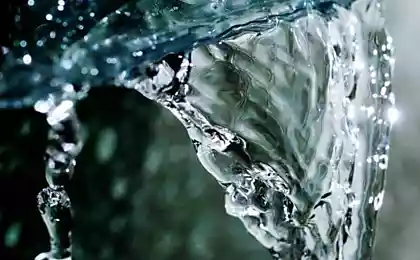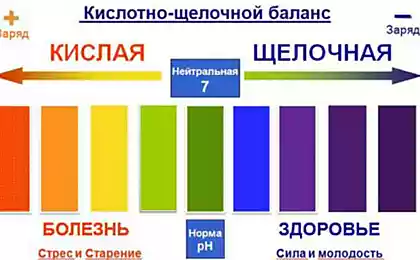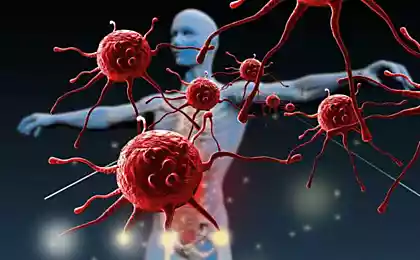444
All about chlorine: effects on the human body
Chlorine is a trace element, associated with most people with liquid disinfect household items, floors, furniture, etc. But in the substance of the broader opportunities and challenges. It is needed by the human body to maintain normal functioning.
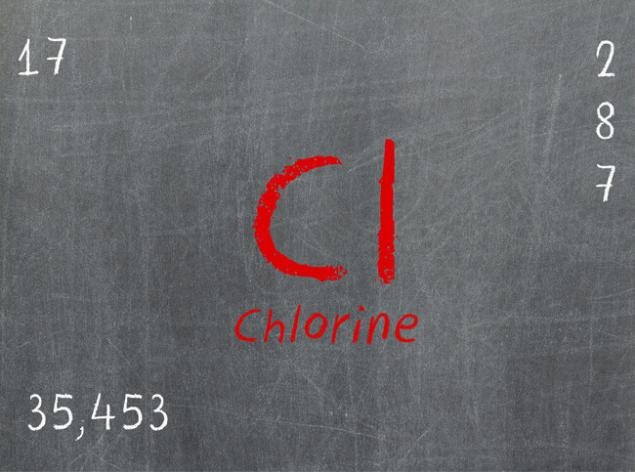
Chlorine as an element of the periodic table was opened in the XVIII century the scientist-chemist Carl Scheele. For greenish-yellow color substance called "chlorine". In Russia, this name did not stick, spread in a short and understandable "chlorine". The benefits and harms of and how does it affect the body?
The main source of chloride is rock salt. In ancient times it ancestors helped to extend the shelf life of the meat of the killed game and fish. However, not only this valuable chlorine. With the development of medicine people learned that the substance involved in metabolic processes in the body and is essential for normal digestion. It helps to keep tissues fluid, whereby the body is dehydrated and lose moisture. When you change its dosage in one way or the other person starts to hurt: he has swollen limbs and face, unstable blood pressure, the heart works intermittently. Chlorine is responsible for the health of red blood cells – red blood cells.
Almost the entire daily requirement of chlorine a person gets out of salt, food and chlorinated water from the tap. The maximum allowable dose of the substance is 7000 mg. If a person does not drink untreated water and consume minimal salt, for example, sits on a salt-free diet, his body can be the lack of chlorine. To aggravate the situation is capable of increased acidity of gastric juice, where the demand for chlorine increases, and excessive motor activity. Sports make a person to sweat, causing the chlorine excreted in sweat, and its amount in the body falls below the minimum acceptable level.
In violation of the acid-alkaline balance in humans, hair may fall out and teeth crumble. Dehydration affects not only the internal organs, but also on appearance: skin abruptly gets old and wrinkled. Such a person feels a loss of strength, appetite, and weakness. It constantly tends to sleep, he can't concentrate and suffers from memory lapses.
To the lack of chlorine in the body can lead taking certain medicines – laxatives, diuretics, corticosteroids, etc. greater reduction in the concentrations can lead to coma and even death.
But with chlorination of water, causing in the body the excess of chlorine, scientists have linked a General deterioration in people's health. In the world, cases of heart disease, cancer and dementia. Although the proportion of patients with cancer of the liver and kidneys is only a small percentage of total cases, more than 80% suffering from diseases of the immune system "must" this chlorinated water. The impact of this item experience the respiratory organs, and the toxins contained in drinking water which chlorine to cope not able to, cause disturbances at the genetic level.
Especially dangerous vapors of chlorine, which in high concentrations can cause burns to the throat and the lining of the esophagus, respiratory failure. The risk group includes people working in hazardous industries – in textile and chemical industries, etc.
We must remember that the chlorine enters the body not only drinking water but also through the skin during bathing, and the number of toxins entering the bloodstream in this way, increases 10-20 times.
The symptoms of excess chlorine each person has to know in time to seek help from a doctor. These include caustic dry cough, sensation of dryness and irritation in the mouth and throat, headache, pain in the eyes, causing increased tearing, heaviness in stomach and frequent colds with increasing temperature.
P. S. And remember, only by changing their consumption — together we change the world! ©
Source: domashniy.ru/

Chlorine as an element of the periodic table was opened in the XVIII century the scientist-chemist Carl Scheele. For greenish-yellow color substance called "chlorine". In Russia, this name did not stick, spread in a short and understandable "chlorine". The benefits and harms of and how does it affect the body?
The main source of chloride is rock salt. In ancient times it ancestors helped to extend the shelf life of the meat of the killed game and fish. However, not only this valuable chlorine. With the development of medicine people learned that the substance involved in metabolic processes in the body and is essential for normal digestion. It helps to keep tissues fluid, whereby the body is dehydrated and lose moisture. When you change its dosage in one way or the other person starts to hurt: he has swollen limbs and face, unstable blood pressure, the heart works intermittently. Chlorine is responsible for the health of red blood cells – red blood cells.
Almost the entire daily requirement of chlorine a person gets out of salt, food and chlorinated water from the tap. The maximum allowable dose of the substance is 7000 mg. If a person does not drink untreated water and consume minimal salt, for example, sits on a salt-free diet, his body can be the lack of chlorine. To aggravate the situation is capable of increased acidity of gastric juice, where the demand for chlorine increases, and excessive motor activity. Sports make a person to sweat, causing the chlorine excreted in sweat, and its amount in the body falls below the minimum acceptable level.
In violation of the acid-alkaline balance in humans, hair may fall out and teeth crumble. Dehydration affects not only the internal organs, but also on appearance: skin abruptly gets old and wrinkled. Such a person feels a loss of strength, appetite, and weakness. It constantly tends to sleep, he can't concentrate and suffers from memory lapses.
To the lack of chlorine in the body can lead taking certain medicines – laxatives, diuretics, corticosteroids, etc. greater reduction in the concentrations can lead to coma and even death.
But with chlorination of water, causing in the body the excess of chlorine, scientists have linked a General deterioration in people's health. In the world, cases of heart disease, cancer and dementia. Although the proportion of patients with cancer of the liver and kidneys is only a small percentage of total cases, more than 80% suffering from diseases of the immune system "must" this chlorinated water. The impact of this item experience the respiratory organs, and the toxins contained in drinking water which chlorine to cope not able to, cause disturbances at the genetic level.
Especially dangerous vapors of chlorine, which in high concentrations can cause burns to the throat and the lining of the esophagus, respiratory failure. The risk group includes people working in hazardous industries – in textile and chemical industries, etc.
We must remember that the chlorine enters the body not only drinking water but also through the skin during bathing, and the number of toxins entering the bloodstream in this way, increases 10-20 times.
The symptoms of excess chlorine each person has to know in time to seek help from a doctor. These include caustic dry cough, sensation of dryness and irritation in the mouth and throat, headache, pain in the eyes, causing increased tearing, heaviness in stomach and frequent colds with increasing temperature.
P. S. And remember, only by changing their consumption — together we change the world! ©
Source: domashniy.ru/
Safe kitchen cleanse of only two ingredients
The Power of Instincts: How We Misunderstand Our Freedom of Choice





